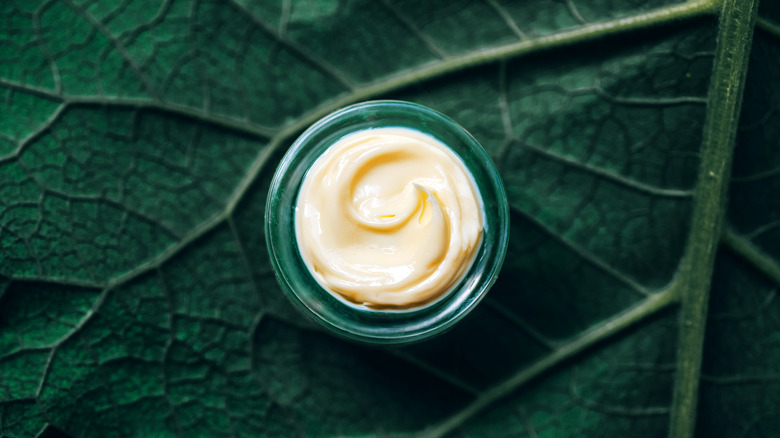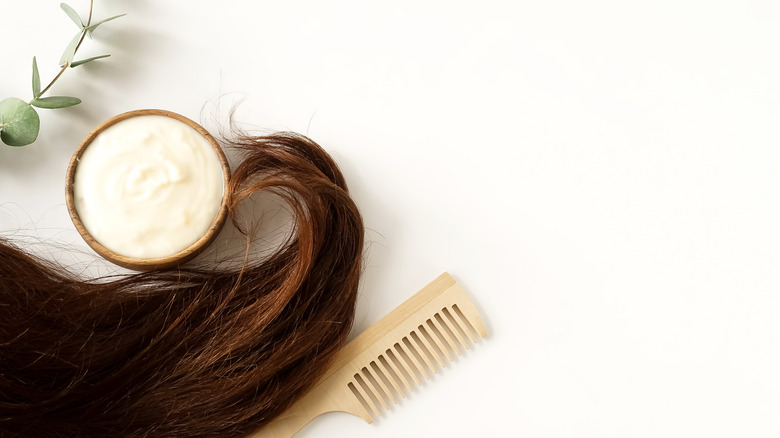Ingredients That Should Make You Second-Guess Your Hair Mask
Feeling iffy about your trusty hair mask's ingredients? You might be onto something — hair care aisles are chock-full of products with dangerous ingredients, ranging from irritating synthetic colors to the endocrine disruptor triclosan (via NaturAll Club). While many people know to steer clear of drying sulfates in their shampoo, instead opting for gentle cleansing agents, hair masks have a whole list of ingredients to avoid as well. Curious how your hair mask holds up? Here's everything you need to know.
It's important to note that, as per Vice, a recent study by Environmental Research shows that up to 84% of chemicals in hair products are not listed on the label. While we may not have total control over each and every ingredient in the products we use, it's still helpful to know the ingredients to avoid at all costs — and there are quite a few. The first culprit? Mineral oil and its derivative, petroleum jelly. According to Nutrafol, mineral oil is found is many hair conditioners for its detangling and smoothing attributes. That being said, it is possibly linked to nonmelanoma skin cancer, and can even deregulate hair growth. Petroleum jelly is just as bad, linked to cancer for its PAH (polyaromatic hydrocarbons) levels. Point taken!
Top hair mask ingredients to avoid
According to Vice, other big no-nos in hair masks are parabens like methylparaben and propylparaben. Although they make your hair mask last longer and prevent bacteria, these chemicals are linked to breast cancer in animals, which may suggest a link in humans as well. Whether or not that's the case, it's probably a good idea to stick to paraben-free hair masks.
Another ingredient to avoid at all costs is polyethylene glycol, which is used to thicken hair products. Although it may leave your hair soft at first, this chemical actually strips hair of moisture from the inside-out, creating a need to use the product again and again (via Nutrafol). When it comes to alcohols, Vice states that fatty alcohols like cetyl, oleyl, and stearyl alcohols are fine, but Love Hair advises to steer clear of super-drying denatured alcohols like alcohol denat and SD alcohols.
Fragrances are another common "bad" ingredient lurking in hair masks, a label that disguises other more dangerous chemicals because the FDA "doesn't require companies to specify them" (via Vice). Fragrances can make a person's asthma worse, plus are linked to irritations and allergic reactions, so going for fragrance-free is best. Last but not least, silicones are one of the main ingredients found in hair masks, acting as a "protective seal" against humidity and keeping tresses frizz-free. However, silicones will only dry your hair over time, plus weigh your hair down — try natural alternatives like coconut oil or argan oil instead.

